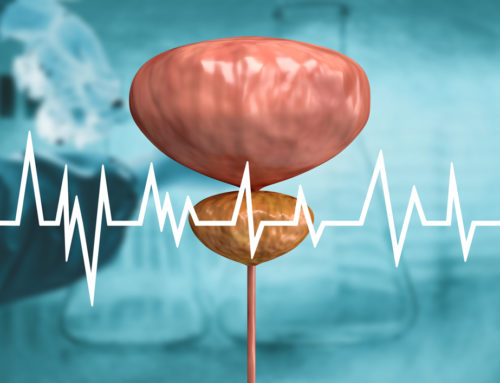There comes a time in most men’s lives when “the equipment” just doesn’t work as well as it should. Each time he contemplates having sex, somewhere in the back of his mind a little voice says, “What if it doesn’t work this time?” That makes everything worse.
It is important to understand why men get erections. There are numerous small arteries inside the penis that dilate, or get larger, allowing for a greater inflow of blood into the penis, thus causing an erection. Those arteries are surrounded by smooth muscle that must relax to allow the arteries expand. When a man worries about his erections, he gets a bit of anxiety which subsequently increases the levels of certain chemicals (adrenaline or nor-adrenaline) in the bloodstream that then go to the penis making those arteries constrict significantly, thus preventing an erection.
There are numerous causes of erectile dysfunction (ED) other than anxiety – low testosterone levels, arterial disease, diabetes, high blood pressure, and numerous medications. The first step in evaluating ED is measuring the testosterone (male hormone) levels. This is done with a simple blood test drawn early in the morning. Circulating testosterone levels are highest in the early morning. This is the reason for early morning erections. Once testosterone levels have peaked, they go down for the next 24 hours or so. Therefore, if the levels are checked later in the day, they will probably be low and therefore are meaningless. If early morning testosterone levels are low, testosterone supplementation may be advised. However, men with a history of prostate cancer should never take testosterone as it may act as a stimulant for prostate cancer.
If testosterone levels are normal and the patient has no history of coronary artery disease, a trial of Viagra, Cialis, or Levitra may be prescribed. These medications all work through a series of chemical reactions that allow the smooth muscle in the small arteries in the penis to relax, thereby increasing blood flow leading to an erection. However, if a patient experiences chest pain after taking any of these medications he should not be given nitroglycerin. This combination of medications would be lethal.
If the above medications are unsuccessful and the patient is not on Plavix or Warfarin (blood thinners), intracorporal injections may be tried. This involves injecting the penis with certain medications in order to achieve an erection. While most men do not consider giving themselves a shot in the penis “foreplay”, these injections are very successful. Other options may include a vacuum device or surgical implantation of a penile implant.
Occasionally, erectile dysfunction may present as the first symptom of a more serious condition such as heart disease or diabetes. Therefore, men having problems with their erections should be evaluated by their primary care doctor or a urologist.






